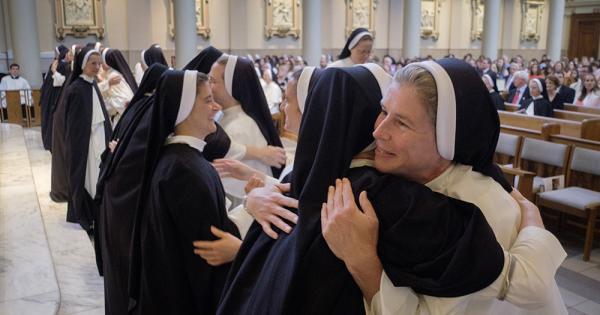The Potential Evolution of Religious Life for Women
The future trajectory of religious life, particularly for women within religious orders, is a topic of contemplation as the inevitability of many traditional communities’ transformation or disappearance looms. The envisioned progression entails a shift from an institutional phase of human development to an interindividual phase, emphasizing interpersonal connections and embracing individual uniqueness.
Historically, women religious have predominantly identified themselves as integral parts of institutionalized communities. These communities encompassed physical spaces like convents and institutions such as hospitals and schools, all governed by established rules, traditions, and ecclesiastical guidelines. The structured nature of their existence, encompassing prescribed attire, living arrangements, and communal decision-making processes, defined their collective identity.
However, societal advancements and the decline of numerous institutional frameworks have necessitated a transition for women religious towards a post-institutional developmental stage. This evolution demands a conscious release of outdated practices while retaining essential elements such as vows and charisms in a redefined context. Embracing the unfamiliar and redefining their self-perception are crucial aspects of this transformative journey towards interindividuality.
This paradigm shift entails a reevaluation of their belief systems, necessitating a shift from a focus on accomplishments to prioritizing intimate connections and personal authenticity. By relinquishing external authority in favor of internal guidance, women religious can navigate this transition towards a more mature and integrated stage of human development. This evolution encourages a departure from rigid adherence to regulations towards a more nuanced understanding of personal responsibility and relational dynamics.
Central to this transformation is the cultivation of autonomy intertwined with intimacy, fostering a holistic approach to decision-making and self-definition. Embracing a mindset of inclusivity and dialogue over rigid dichotomies and regulations signifies a profound shift in their approach to religious life. This shift towards authenticity and genuine love in relationships signifies a significant departure from abstract intentions towards tangible expressions of care and empathy.
While this transition may introduce uncertainties and challenges, it offers the promise of a deeper connection to spiritual principles and a renewed sense of integrity. By embracing their authentic selves and fostering genuine relationships, women religious can navigate this evolution towards a more profound understanding of their faith and purpose within contemporary society. Their legacy of resilience and adaptability throughout history suggests a hopeful outlook on their willingness to embrace this transformative journey.
